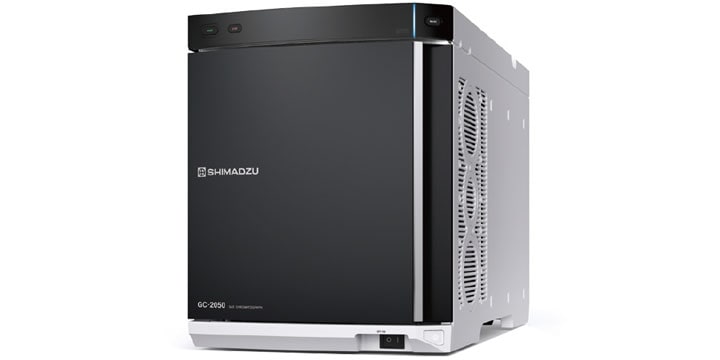
Brevis™ GC-2050
・The compact model, Brevis GC-2050 (universal power supply: 230 V) enables a high-speed temperature rise. It is possible to reduce analysis time by using Brevis GC-2050 and hydrogen gas. ・Brevis GC-2050 and dual injectors save space and provides high productivity.
Total petroleum hydrocarbons (TPH) refers to mixtures of various types of hydrocarbons. In the production of petroleum hydrocarbon products, there are concerns about environmental pollution caused by TPH remaining in water and soil. There are also health risks, so it is very important to control the concentration of TPHs. ISO 9377-2-2000 describes a method of analysis using solvent extraction and gas chromatography. In this method, the separation of C10 from extraction solvent and elution of C40, while keeping the relative response (peak area) of n-tetracontane (C40) to n-eicosane (C20) at least 0.8, are required. For that reason, it is necessary to lower the initial temperature and increase the thickness of the column, but the analysis time takes about 20 to 30 minutes. In the tests described here, the initial temperature was not lowered, and a column with a thick film and a hydrogen carrier were used. Brevis GC-2050 supports universal power supply, and the device is prepared with a wiring configuration for a 230 V power supply voltage to achieve high-speed temperature increase, realizing high-speed analysis within 6 minutes. This article introduces an example of the high-speed analysis of TPH using hydrogen as the carrier gas. A system performance test and the linearity of the calibration curve was checked, based on ISO 9377-2-2000.
November 5, 2023 GMT
Some products may be updated to newer models